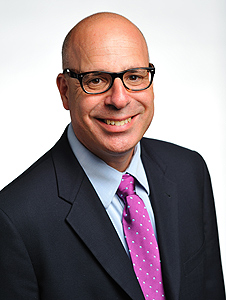
Last year, the provost-appointed International Executive Council successfully advocated adopting “global citizenship” as one of the guiding principles for UConn’s internationalization efforts. As one of the proponents of this recommendation, I was thrilled with the provost’s decision. I am also cognizant of its pitfalls.
Global citizenship, a term that has gained currency in the last five years, initially hit the scene with only vague definitions, many of which were contradictory. But in a recent review of the top Google references, I can now see that the term is beginning to distill into a definition that I have always subscribed to: a sense of responsibility for the problems afflicting the world and a commitment to playing a meaningful role in their resolution. This participatory definition of global citizenship demands results. It also encompasses UConn’s values and mission as an institution.
UConn is a land grant university. A quick study of the history of land grant institutions suggests first and foremost a civic responsibility to provide access to knowledge and skills to groups that had hitherto been denied. When the first Morrill Act was established in 1862, it was targeted at breaking down class divisions and educating children of parents working in factories. I can only surmise that this democratic ethos underlay land-grant universities’ eventual commitment to diversifying their student bodies. With the passage of the Smith-Lever Act in 1914, the land grant institution’s mission expanded to include cooperative extension programs whose mandate was to share knowledge and applicable research to local geographical communities. One can easily envision the necessity of extending this mandate beyond our regional or national borders to locations around the globe. Indeed, global citizenship would seem to be a natural corollary of the fundamental components of teaching/learning, research, and public engagement that constitute the mission of a public university.
Global citizenship is a useful framework not only because it can shape our international priorities for the future, but because it can telegraph some of the impactful work in which our researchers, teachers, administrators, and students are already so actively engaged. In future blogs, I will describe some of these specific projects in more detail, but we might for now just trumpet a sampling of these efforts, such as the establishment of a comprehensive water conservation training institute in Ethiopia by our engineers and geographers; the implementation of an HIV prevention and treatment program in South Africa by our psychologists; the creation of immunization programs in Rwanda by our doctors; or the assistance to community service organizations across the entire spectrum of civil society in places as geographically diverse as London, Cape Town, and Antigua by our students under the guidance of our faculty.
Yet there are dangers with the concept of global citizenship, and it’s worth pointing them out at the outset of our journey. If global citizenship is increasingly coming to be defined as something proactive, citizenship in general within the United States has become much more passive. In the 19th century, Alexis de Tocqueville once marveled at the associational life of Americans; and our young people seem to embody this spirit if you just look at how much volunteer work they’re involved in. Nevertheless, we don’t often equate their work with citizenship. Instead, citizenship has devolved into mere membership or a natal connection to our state. In its most active sense, citizenship seems to have fallen victim to what seems to me our primary identity as Americans –consumers. I can’t help but remember President Bush calling upon us all to show our patriotic duty after 9/11, not by asking us to make a shared sacrifice but rather to go shopping. Our role of citizens was to be exercised at Wal-Mart.
Global citizenship is also already threatened with commercialization. When I ask students what they mean by the concept, they often refer to a feeling at home in other countries. They often associate it merely with world travel. Responsibility and commitment to improving the global commonweal come up far too rarely. For many young people, just feeling at home in London or Florence or South Africa can make one a global citizen. If integration of other parts of the world into one’s own is sufficient, then global citizenship actually might be satisfied by pointing to our bodies, which are covered by articles produced in various corners of the world. I buy clothes, ergo I’m a global citizen.
Global citizenship is already in danger of cooptation by corporate interests. There are more than 1.2 million references to “global citizenship” on Google, and many of those who have made it to the top of the list are corporations. Many multinational companies have adopted the term as a replacement of corporate responsibility. I certainly don’t have any problem with corporations trying to be good citizens. Universities could learn a lot from them. What worries me, however, is that citizenship has become a marketing tool for companies to tout their products as by definition improving the world. I had always assumed citizenship and capitalism were in constant tension within liberal democratic societies. Now these two concepts are being sold as one and the same.
Finally, there is the challenge of global citizenship as simply the latest example of American colonialism. Critics have long attacked global citizenship as a contradiction in terms. Citizenship refers to self-determination, particularly the right to elect one’s own officials. Calling for Americans to be global citizens is akin to asking them to be given the right to encroach on every other country’s sovereignty. Global citizenship may be nice for Americans, but it’s bad for everyone else.
Personally, I’ve never been persuaded that the danger of colonialism should stop us from engaging the world. To be sure, we must always be sensitive not to impose our will on weaker entities. But certainly there are ways to collaborate with peoples in different parts of the world to achieve goals that will improve the lives of specific localities in ways that are respectful and beneficial.


